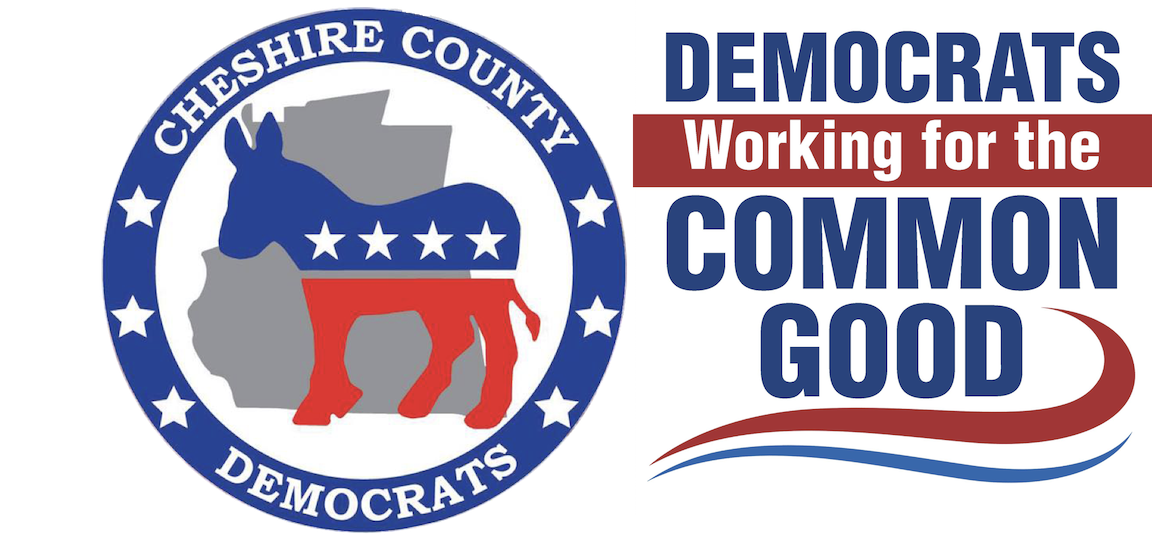In politics, there are some things that everyone is for — like good schools, low taxes for the middle class, and good public services.
When politicians vote, we see where their values truly lie.
The New Hampshire legislative session that ended in June was no different. On many issues we saw a huge gulf between the opening rhetoric, and the actual votes — and a stark contrast between the Republicans and the Democrats.
Public schools
In Concord, everyone speaks highly of the public schools. Everyone’s favorite this year was state funding for full-day kindergarten. But when it came time to fund kindergarten, the differences became clear.
The Republicans wrote a budget that provided an additional $1 million of tax dollars a year for charter schools. Full-day kindergarten will receive no state tax dollars. Instead, we will rely on keno (video slot machines) revenue to fund kindergarten. The Lottery Commission estimates we will realize $9 million a year from keno — but at what cost in gambling addiction, personal bankruptcies and broken homes?
The basic amount of state aid to the public schools is about $3,600 per student per year. Charter schools receive almost twice as much — about $6,600 per student — but none of it is from the local property tax, which allows charter schools to present the fiction that they don’t cost taxpayers anything.
Tax cuts:
Politicians love tax cuts. It’s their chance to play Santa Claus. At the end of the legislative session, we find that some taxpayers are “naughty” and get a lump of coal, while some are “nice” and get a tax cut. This year was no different.
At the beginning of the session, it was proposed that the state resume paying part of the retirement system cost for schools and municipalities. The goal was to provide a $40 million tax cut to property taxpayers. The Republicans in the Legislature said “no way.”
Tax cuts for big business were another matter. The state budget includes a big cut in the Business Profits Tax. This is a tax that virtually no small business pays, because they pay their profits out as salaries to their owners, reducing their taxable income to zero. Seventy percent of the cut will go to approximately 500 of our largest, most-profitable businesses, particularly national and multinational firms.
Score this as big business 1, property taxpayers 0.
Budget priorities
In every budget process, wants exceed revenue. When budget priorities are set, it reveals the values of the budget writers.
During each budget cycle in Concord, Republicans treat it like a morality play, where they tell the Democrats that they have to live within their allowance.
The reality is that the Democrats go to bat each year for property taxpayers, the poor, the disabled, the University System, the sick and the elderly; while the Republicans go to bat for big business and the wealthy. Most of the time, the Republicans win.
Every budget year, Republicans say we do not have enough revenue to make UNH affordable, eliminate the waiting list for the severely disabled, restore our community mental health system, fund Medicaid or provide property tax relief.
And every budget year, Democrats ask why the wealthy are not paying their fair share of taxes. New Hampshire has one of the most regressive tax systems in the nation. On average, the poor pay over 8 percent of their incomes in tax. The middle pays about 6 percent. The top pays about 3 percent.
Our tax system is regressive because New Hampshire relies on the property tax for over two-thirds of all state and local tax revenue. Since 2000, the Legislature has repeatedly down-shifted obligations to the local level. Meanwhile, the total of property taxes collected in New Hampshire has doubled. Very few people have seen their incomes double during that same time period.
Rep. Dick Ames, a Democrat from Jaffrey, proposed a reform of the Interest and Dividends tax that would have reduced the tax on small savers, and broadened the tax to include capital gains. The state would have realized about $100 million in new revenue — mostly from our wealthiest residents. Predictably, the bill failed on a nearly party-line vote. And the underfunding of the safety net, the short-changing of higher education, and the down-shifting to the property taxpayer will continue for another two years.
Legislating is about making choices. Our Republican Legislature has made clear that it values charter schools more the public schools; thinks businesses need a tax cut, but homeowners do not; and would rather underfund UNH and the safety net, than ask the wealthy to pay their fair share of taxes.
It’s all about choices. You get to make your choice next year.
Mark Fernald of Sharon is a former state senator and was the 2002 Democratic nominee for governor. He can be reached at mark@markfernald.com.

